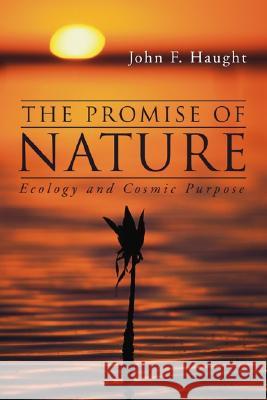The Promise of Nature » książka
The Promise of Nature
ISBN-13: 9781592449453 / Angielski / Miękka / 2004 / 162 str.
The ecological crisis faced by our planet may have the effect of transforming religious ideas. Religions were born and took their distinctive shapes by the need of people to find harmony in their internal and external worlds. In our day that harmony is being challenged by a breakdown in the relationship between human beings and their global environment. Do the religious views held by most believers today provide an adequate basis for interacting with nature? Theologian John Haught believes they do not. Nor, he says, do stereotyped religious attitudes about the natural world enable believers to dialogue with physical scientists, many of whom are nonbelievers. To make the dialogue work we need a common language about nature and how it works. Haught maintains that process language will not only assist the ecological dialogue but help to transform religion itself. Nature is "holy" not because it originated at the hand of a creator or because it transparently reveals God now. It is holy primarily because of its direction: it is promise. This "future dimension" of nature lets us deal intelligently with the present crisis without forsaking the mysterious power that nature has for us.











